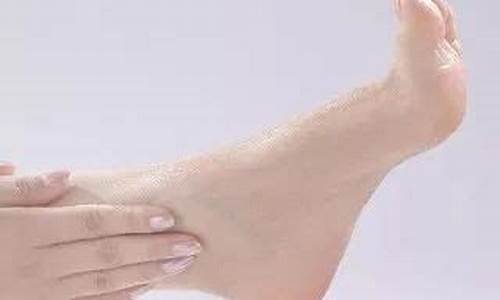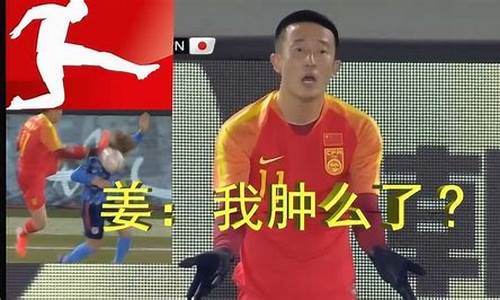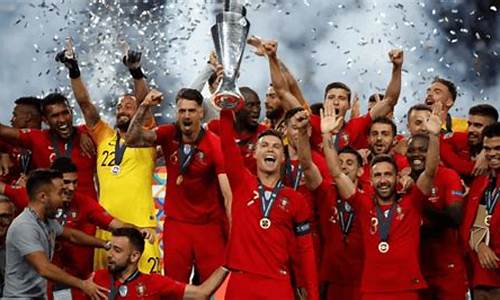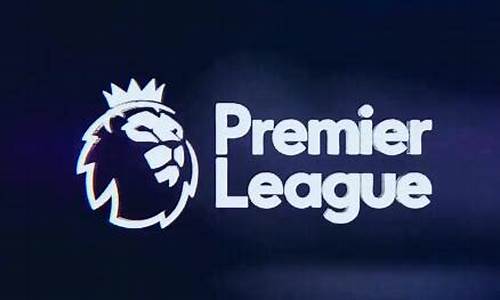您现在的位置是: 首页 > NBA赛事 NBA赛事
奥运五环的象征意义英语介绍_奥运五环的象征意义英语
tamoadmin 2024-07-11 人已围观
简介1.求有关奥运方面的英文常识!!!2.关于奥运会的英语作文带翻译3.奥运五环相连象征着什么4.奥运五环英语是什么?5.奥运五环资料英语版奥运五环(英语:The Olympic Rings?或称五环会徽、奥林匹克运动会会徽),是五个互扣的环圈,五环的颜色自左至右为蓝、黄、黑、绿、红,也可用单色绘制,而底色为白色。奥林匹克五环於1913年由前国际奥林匹克委员会主席、现代奥林匹克运动会创始人皮埃尔·德·
1.求有关奥运方面的英文常识!!!
2.关于奥运会的英语作文带翻译
3.奥运五环相连象征着什么
4.奥运五环英语是什么?
5.奥运五环资料英语版
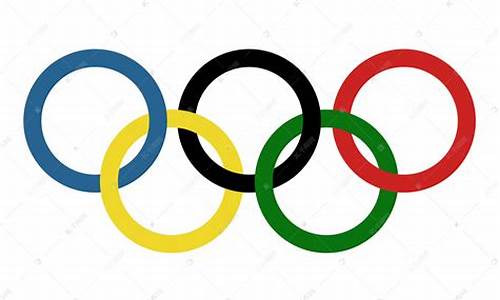
奥运五环(英语:The Olympic Rings?或称五环会徽、奥林匹克运动会会徽),是五个互扣的环圈,五环的颜色自左至右为蓝、黄、黑、绿、红,也可用单色绘制,而底色为白色。奥林匹克五环於1913年由前国际奥林匹克委员会主席、现代奥林匹克运动会创始人皮埃尔·德·顾拜旦设计,因以五色能概括各会员国国旗的颜色而选定,但之後对五环赋予更多内涵。1979年,国际奥委会出版的《奥林匹克评论》中指出:五环象徵五大洲的团结,全世界的运动员以公正、坦率的比赛和友好的精神在奥运会上相见。
求有关奥运方面的英文常识!!!
奥林匹克五环标志是由皮埃尔-德-顾拜旦于1913年构思设计的,奥林匹克标志是由《奥林匹克宪章》确定的。也被称为奥运五环标志,它是世界范围内最为人们广泛认知的奥林匹克运动会标志。
它由5个奥林匹克环套接组成,由蓝、橙、黑、绿、红5种颜色。环从左到右互相套接,上面是蓝、黑、红环,下面是是黄、绿环。整个造形为一个底部小的规则梯形。五个不同颜色的圆环代表了参加现代奥林匹克运动会的五大洲——欧洲、亚洲、非洲、大洋洲和美洲。亚洲是**的,非洲是黑色的,欧洲是蓝色的,美洲是红色的,大洋州是绿色的。五色代表的是世界五大洲不同肤色的人民,五环连在一起代表着五大洲的人们能够友好相处。每一个参加奥林匹克运动会的国家都能在自己的国旗上找到至少一种五环的颜色。
翻译是:
Olympic rings logo by Pierre - Germany - Coubertin in 1913 conceptual design of the Olympic logo is the "Olympic Charter" defined. Also known as the Olympic rings logo, it is a worldwide awareness of the most widely Olympic Games logo.
It consists of five Olympic ring Taojie formed by blue, orange, black, green and red five kinds of colors. Central Taojie each other from left to right, above is blue, black, red ring, the following yes yes yellow and green ring. Form as a whole at the bottom of the rules on the ladder. Five different colors of the rings represent the five continents to participate in the modern Olympic Games - Europe, Asia, Africa, Oceania and the Americas. Asia is yellow, black Africa, Europe is a blue, red America, Oceania is green. Five colors represent the five continents, the world's people of different skin colors, rings represent the five continents together to the people friendly to each other. Each country can participate in the Olympics in their own national flag on the rings to find at least one color.
关于奥运会的英语作文带翻译
奥运会英文文章:
2008北京奥运会:the BEIJING 2008 Olympic Games - Games of the XXIX Olympiad
我们通过一些句子来增强对奥运会的了解:
The international Olympic Committee constituted itself on 23rd June 1894.国际奥委会于1894年6月23日成立。
The Olympic symbol, the five interlocking rings, represents the union of the five continents and the meeting of the athletes of the world at the Olympic Games.奥林匹克的标志是五个相连的圆环,它代表着五大洲的团结和全世界运动员在奥运会上相聚一堂。
The official languages of the IOC are French and English.国际奥委会的官方语言是法语和英语。
The Olympic flame is a symbol reminiscent of the ancient Olympic Games.奥运圣火是人们缅怀古代奥运会的象征。
The Olympic Games consist of the Games of the Olympiad and the Olympic Winter Games. Both take place every four years.奥运会包括夏季奥运会和冬季奥运会,它们都是每四年举办一次。
The Olympic Games shall be proclaimed open by the Head of State of the host country.奥运会由东道国国家元首宣布开幕。
The delegation parade in alphabetical order according to the language of the host country, except for Greece, which leads the parade, and for the host country which brings up the rear.代表团按东道国语言文字的字母顺序入场。希腊和东道国例外,希腊代表团第一个入场,东道国代表团最后一个入场。
市民奥运英语100句
I. Good Wishes 祝愿用语
1. Good Luck!祝你顺利(祝你好运)!
2. All the best!祝你万事如意!
3. Have a good trip! 旅途愉快!
4. Wish you a success!祝你成功!
5. Have a good day! 祝你今天开心!
6. I hope to see you soon.我希望不久见到你。
7. Congratulations! 祝贺(你)!/恭喜!
8. Happy birthday! 生日快乐!
9. I wish you the best of health! 祝你身体健康!
10. Long live our friendship! 愿我们友谊长存!
II. Asking for and offering help请求提供帮助
11. Could you help me? 你能帮助我吗?
12. Would you please do me a favor? 能帮我个忙吗?
13. Would you please give me a hand? 帮我个忙好吗?
14. What can I do for you? 您需要什么帮助?
15. Can(May)I help you? 我可以帮你吗?
16. Let me help you. 我来帮助你。
17. It's very kind of you! 你真是太好啦!
III. Asking the Way 问路
18. Excuse me, can you tell me the way to the station?
劳驾, 请问去车站怎么走?
19. Straight on. 一直往前走。
20. Go down this street. Then turn left. 沿这条街走下去, 然后朝左拐。
21. Turn right at the second crossing. 在第二个路口往右拐。
22. I'm sorry. I have no idea where it is. 对不起,我不知道它在哪儿。
23. Thank you all the same. 尽管如此, 还是要谢谢你。
24. Is it far from here? 离这儿远吗?
25. Yes. You'd better take a bus. 远,你最好坐公共汽车去。
26. It's about 1 kilometer from here. 距这里约一公里。
27. Excuse me, does the Bus No. 4 stop at the China Trade Center? 劳驾,
4路公共汽车在国贸停吗?
28. How long is the ride? 坐车要用多长时间?
29. It will take about 20/twenty minutes. 大概需要20分钟。
30. Thank you very much. 非常感谢。It's a pleasure. 乐意为您效劳。
IV. Shopping 购物用语
31. Can I help you? 您要买点什么?
32. Yes, I'd like to buy a book. 是的, 我要买本书。
33. Ok. Here you are. 行,给你。
34. How much is it? 多少钱?
35. It is seventeen yuan and fifty cents. 十七块五。
36. May I help you? 您要买什么?
37. Yes, I want to buy a shirt. 是的, 我想买一件衬衫。
38. What color/size/style do you want? 要什么颜色/尺寸/样子的?
39. A blue/red/green/yellow/white/black one. 蓝色的/红/绿/黄/白/黑
40. It's wonderful. I like it very much. 真不错。我非常喜欢。
41. All right. I'll take it. 好的, 我买这件衬衫。
42. Where can I pay? 在哪付款?
43. You can pay at the cashier over there. 您可以在那边的收银台付款。
44. Can I use my credit card? 我能使用信用卡吗?
45. Sure. Go ahead. 当然。请便。
46. Here's your change/receipt. 这是找您的钱/给您的收据。
47. Thanks for your good service. 谢谢你的热情服务!
48. Do come again, please. 欢迎再来。
49. Thank you. 谢谢!You're welcome. 不用谢。
V. Restaurant English 饭馆英语
50. May I have a look at the menu/wine list? 请给我看看菜谱/酒水单。
51. What's the specialty of this restaurant? 这个餐馆的的招牌菜是什么?
52. Are you ready to order? 您现在可以点菜了吗?
53. I'd like something spicy. 我想吃些辣的东西。
54. What do you recommend? 有什么菜可以推荐一下吗?
55. The steak sounds good to me. 听起来牛排不错。
56. I'm full. I can't eat any more. 我饱了,不能再吃了。
57. Bill, please. 劳驾,结帐。
58. Keep the change. 不用找零钱了。
VI. Time, Days and Months 时间、星期和月份
59. What time is it? 几点了?
60. It's 6∶00 o'clock. 六点了。
61. Excuse me, could you tell me the time? 劳驾,请问现在几点了?
62. It's half past ten. 现在十点半。
63. Excuse me, have you got the time, please? 对不起, 请问现在几点了?
64. It's a quarter to nine. 现在差一刻九点。
65. What day is it today? 今天是星期几?
66. It's Sunday/Monday/Tuesday/Wednesday/Thursday/Friday/Saturday. 今天是星期天/周一/周二/周三/周四/周五/周六。
67. What's the date today? 今天几号?
68. Today is Aug. 2nd. 今天是八月二号。
69. What month is it? 今天是几月份?
70. It's January/Feburary/March/April/May/June/July/August/September
/October/November/December. 现在是一月/二月/三月/四月/五月/六月/七月/八月/九月/十月/十一月/十二月。
71. When were you born? 你哪年初生的?
72. I was born in 1949/nineteen forty-nine. 我1949年初生的。
VII. Entertaining Guests 招待客人
73. Hello! 您好! How are you doing? 你好吗?
74. Hello! Welcome to our unit (home)! Sit down, please. 你好! 欢迎到我们单位(家)来!请坐。
75. Would you like a cigarette? 您吸烟吗?
76. No. Thanks. 不,我不吸烟。谢谢。
77. Would you like to drink something, coffee, tea or cola? 您想喝点儿什么,咖啡、茶,还是可乐?
78. Tea is fine with me. Thank you. 喝茶就行了。谢谢!
79. Help yourself to some fruits. 请随便吃点儿水果。
80. Give /Pass me a cup of tea/a glass of water, please! 请递给我一杯茶/。
81. Cheers! 干杯!
82. To our friendship! 为我们的友谊干杯!
83. Thanks a lot. 多谢。
VIII. Other Expressions 其它用语
84. What's the weather like today? 今天天气怎么样?
85. It's fine today. 今天天气很好。
86. Lovely day, isn't it? 天气很好,是吧?
87. Autumn is the best season here. 秋天是这里最好的季节。
88. Where are you from? 您是哪里人?
89. I'm from Hong Kong. 我是香港人。
90. Are you American? 你是美国人吗?
91. No, I'm Chinese. 不,我是中国人。
IX. Saying Goodbye 话别
92. When are you off? 你什么时候走?
93. I'm flying back on Sunday. 我星期天坐飞机回去。
94. Goodbye then and all the very best! 再见了, 祝你顺利!
95. Please say hello to your family. 请代问你的家人好。
96. I hope you'll come back to China again! 希望你能再来中国!
97. I'll do that. 我一定来。
98. See you again in the near future. 后会有期!
99. Take care. 多保重。
100. Goodbye! (See you!)再见!
希望你用得着
奥运五环相连象征着什么
This simple ten words, give infinite power of Chinese people, especially for I but the speech is also a kind of strong spirit to encourage, this is the slogan of the Olympic game of 2008 Pekings.
The Chinese people's Olympic game to 2008 Pekings is total to take a kind of expectation.Remember at the beginning process of bid for the Olympic game, the Chinese committee of Olympics also obtains 2008 Olympic games to hold the power with difficulty.This time the Olympic game of 2008 Pekings, for China is a develop of a fair show, is also a fair show that emerges the Chinese magic power toward international community.
The meeting badge" China prints Peking that dance of · move" of the Olympic game Chinese special features.The characteristics of Peking and Olympics exercise the chemical element handiness combine.Red, in China always is to represent the good luck pleased to celebrate the color.Meeting the badge adoption red, represented the Chinese people to the international community of fine wish the wish." Chinese Peking, welcome the friend of the world-wide locations" adopted the Chinese Chinese brush-pen word Chinese characters simplified Chinese style, design special.Explain out without reserve the calligraphy magic power that China spreads fame the overseas.
China is an everyone's court for harmonize, we are living under the environment that dulcify thus, everybody is a happy child.The mascot" the FU WA" of the Olympic game also just represented us this is happy.Innocent child.
The FU WA is be"ed face"" clear and bright"" the NINI" of" the shell shell" by" the HUANHUAN" five be filled with the Chinese race special features of doll constitute.The homophonic of five FU WA name add exactly" Peking is welcome you".This expressed the Chinese people's amity to the people in the world again.The color of the FU WA also acts in cooperation the Olympics at the right moment five yellow turquoise blue of red orange of wreaths, expressed perfect annotation of Olympics to spirit of Olympics of Peking.
The Olympics of 2008 Pekings, the dream of a Chinese, bears in the applause of the world and the tears of the Chinese nations.Be a member of the Chinese nation, I will use the most sincere voice, saying loudly:
" Bless you, belong to China, belong to Peking, belong to our 2008!"
这简单的十个字,给了中国人民无限的力量,特别是对于我而言更是一种强大的精神鼓舞,这就是2008北京奥运会的口号。
中国人民对2008北京奥运会总带有一种期待。回想当初申办奥运会的历程,中国奥运委员会也是好不容易才取得2008奥运会的举办权。这次2008北京奥运会,对于中国是一个发展的好机会,也是向世界各国展现中国魅力的好机会。
奥运会的会徽“中国印·舞动的北京”将中国特色.北京特点和奥林匹克运动元素巧妙结合。红色,在中国一直是代表吉祥的喜庆颜色。会徽采用红色,代表了中国人民对世界各国的美好祝愿。“中国北京,欢迎世界各地的朋友”采用了中国毛笔字汉字简体风格,设计独特。把中国名扬海外的书法魅力毫不保留地诠释出来。
中国是一个和谐的大家庭,我们生活在这样愉悦的环境下,每个人都是幸福的孩子。奥运会的吉祥物“福娃”也正代表了我们这群幸福的.天真的孩子。
福娃是由“欢欢”“迎迎”“贝贝”“晶晶”“妮妮”五个充满中国民族特色的娃娃组成。五个福娃名字的谐音加起来正是“北京欢迎您”。这再一次表达了中国人民对世界人民的友好。福娃的颜色也正好呼应奥运五环红橙黄绿蓝,表现了北京奥运对奥运精神的完美诠释。
2008北京奥运,一个中国人的梦想,在世界的掌声和中华民族的泪水中诞生。身为中华民族的一份子,我将用最真诚的声音,大声说:
“祝福你,属于中国,属于北京,属于我们的2008!”
奥运五环英语是什么?
奥运五环分别代表:欧洲(天蓝色)亚洲(**)、非洲(黑色)、澳洲(草绿色)、美洲(红色)。象征着五大洲的友谊和团结。
1.简介:
奥林匹克运动会(希腊语:Ολυμπιακο? Αγ?νε?;法语:Jeux olympiques;英语:Olympic Games)简称“奥运会”,是国际奥林匹克委员会主办的世界规模最大的综合性运动会,每四年一届,会期不超过16日,是目前世界上影响力最大的体育盛会之一。
2.起源和发展:
奥林匹克运动会发源于两千多年前的古希腊,因举办地在奥林匹亚而得名。古代奥林匹克运动会停办了1500年之后,法国人顾拜旦于19世纪末提出举办现代奥林匹克运动会的倡议。1894年成立奥委会,1896年举办了首届奥运会,1924年举办了首届冬奥会,1960年举办了首届残奥会,2010年举办了首届青奥会。
2017年7月,国际奥委会决定由法国巴黎承办2024年奥运会,由美国洛杉矶承办2028年奥运会。
奥运五环资料英语版
奥运五环英语是:Olympic rings。
奥运五环一般指奥林匹克标志,它由5个奥林匹克环从左到右互相套接组成,上方是蓝色、黑色、红色三环,下方是**、绿色二环,亦能以单色形式使用,整体造型为一个底部小的规则梯形。
奥林匹克标志象征五大洲和全世界的运动员在奥运会上相聚一堂,同时强调所有参赛运动员应以公正、坦诚的运动员精神在比赛场上相见。
奥运五环象征意义
奥林匹克标志的最初设计意图在于以五环象征世界上承认奥林匹克运动,并准备参加奥林匹克竞赛的五大洲,而第六种颜色白色——旗帜的底色,与五环的五种颜色的组合能够表示当时世界上所有国家的国旗颜色。
意指所有国家都毫无例外地能在自己的旗帜下参加比赛,这蕴含着顾拜旦吸收殖民地民族参加奥运会,为各民族间的和平事业服务的思想。(注:五环的颜色与各大洲之间不存在明确的对应关系)
随着时间的推移和奥林匹克运动的发展变化,对奥林匹克标志的阐释也随之而变。《奥林匹克宪章》指出,奥林匹克标志象征着奥林匹克运动的活动,代表着五大洲的团结,以及全世界运动员以公正、坦率的比赛和友好的精神在奥运会上相见,充分体现奥林匹克主义的内容与“所有国家、所有民族”的“奥林匹克大家庭”主题。
以上内容参考:百度百科-奥林匹克标志
奥运会会旗和奥运会圣火的含义
The OLYMPIC FLAG
现代奥运会创始人顾拜旦于1913-1914年间设计了奥运会的会旗。它由5个奥林匹克环从左至右套接而成,可以是单色,也可以是蓝、黄、黑、绿、红5种颜色。最初的解释是五种颜色代表各国国旗的颜色,后来又将5个不同颜色的圆环解释为五大洲的象征。1920年,奥林匹克旗第一次飘扬在安特卫普夏季奥运会体育场。这届奥运会后,历届奥运会开幕式上由上届举办城市转交此旗,由举办城市保存,比赛期间主运动场仅悬挂代用品。
Baron de Coubertin designed the Olympic Flag in 1913-14. It has five interlocking rings (blue, yellow, black, green and red) on a white background. The ring's colours were based on the knowledge that at least one of these colours is on every flag of each participating country. The five interlocking rings represent the union of the five continents and the meeting of the athletes of the world at the Olympic Game.
The Olympic Flag was used for the first time in the 7th Olympiad in Antwerp, Belgium in 1920. It is paraded during the opening ceremony of each Game. At the end of the Games, the Olympic Flag is presented to the next host city by the Games host city.



